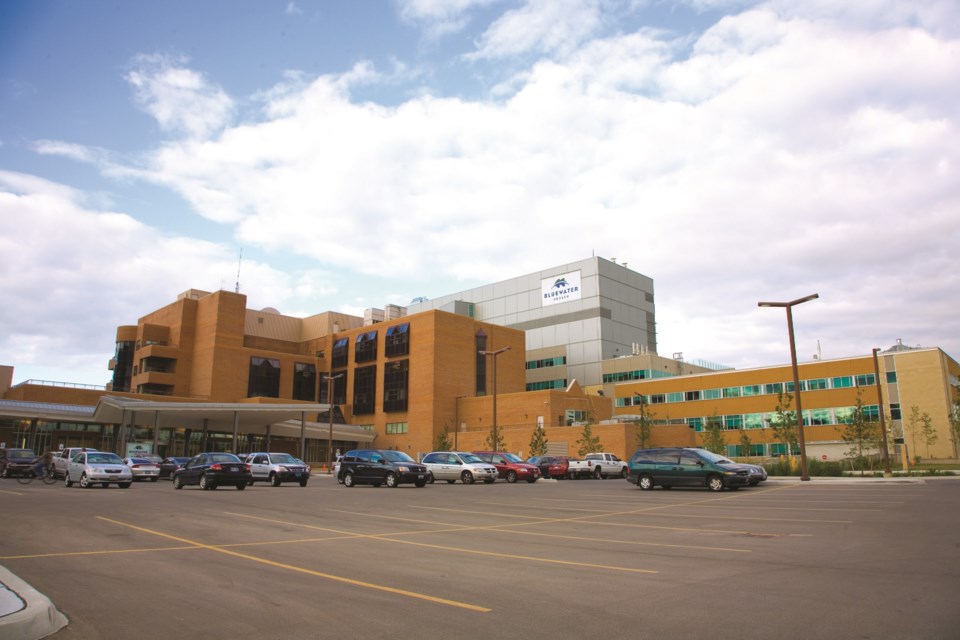Accessing quality care in French has been a persistent challenge for Sarnia’s Francophone community, forcing many to navigate critical health issues in their second language—often leading to serious consequences such as misdiagnoses and medical errors.
Normand Prévost, president of Sarnia’s Centre Culturel Jolliet, knows this struggle firsthand. As a Francophone, he has faced significant difficulties communicating complex medical concerns.
“It's hard to explain your needs in a different language,” said Prévost. “There is some easy stuff, like your address, but when it is specific, medical needs, it’s a lot harder.”
Prévost moved to Sarnia over 40 years ago with a group of families after a refinery plant shut down in Montreal. Today, Sarnia is home to approximately 5,400 Francophones—about 4 per cent of the population.
“My English is still not that good, but back then it was not good,” said Prévost. “We were 84 families together, and we stuck together for a long time. We adjusted to life in Sarnia slowly and we always tried to find French doctors and French services. Back then, there was hardly any.”
Bluewater Health will implement a French Language Designation project to improve accessibility for French-speaking patients. According to a report by Tara Young, Communications and Public Affairs Business Partner at Bluewater Health, presented to a board meeting on Sept. 25, the hospital must meet designation requirements to comply with the Provincial French Language Services Act after Sarnia was designated as the 27th area in Ontario to provide French-language services.
“Our goal is to ensure that everyone who comes through our doors receives the care and communication they need, in both official languages,” said Paula Reaume-Zimmer, chief executive officer of Bluewater Health.
While government offices in Sarnia had to meet these requirements by Nov. 1, Bluewater Health has more time to implement its project. However, the hospital must demonstrate substantial progress to Ontario Health by the end of its fiscal year in March 2025.
The hospital has identified 20 designation requirements, including bilingual communication materials, staff training, and the creation of a governance structure to oversee French-language services.
“Each of these areas is part of the foundational work we’re doing to create a robust framework for accessible French-language care,” said Reaume-Zimmer.
A study published by the National Institutes of Health found that about 20 per cent of Francophone patients living in areas where they are a linguistic minority experience serious difficulties accessing health services in French. Many are forced to use English-language services, which increases the risk of miscommunication, diagnostic errors, and poor health outcomes. Limited access to care in their preferred language also results in lower adherence to treatments and decreased satisfaction with health services, compounding the challenges faced by linguistic minorities.
Tanya Tamilio, president of the Centre Communautaire Francophone de Sarnia-Lambton, said there has been a long-standing desire to offer healthcare services in French.
“One challenge that patients and clients have experienced is that the shortage of bilingual health and human resources at Bluewater Health will at times make it difficult for them to act upon an active offer of French language services,” said Tamilio. “We are reassured by their continued desire to strategize and plan for the presence of a continuum of active offers of French language services.”
The push for French Language Designation was made by the Centre Communautaire Francophone de Sarnia-Lambton and Centre Culturel Jolliet to expand French services in the community. It received support from Sarnia-Lambton Member of Parliament Marilyn Gladu, Sarnia-Lambton Member of Provincial Parliament Bob Bailey, and Sarnia Mayor Mike Bradley.
Prévost hopes the Francophone community will embrace these services and raise awareness about their availability. He emphasized the importance of professionals identifying themselves as bilingual through clear signage such as name tags and badges.
“It is only a step,” said Prévost. “We still have to use the services. If French people don’t use it, it won’t be worth it. We have to teach French people to use the services and let the hospital and other places know we want those services.”
